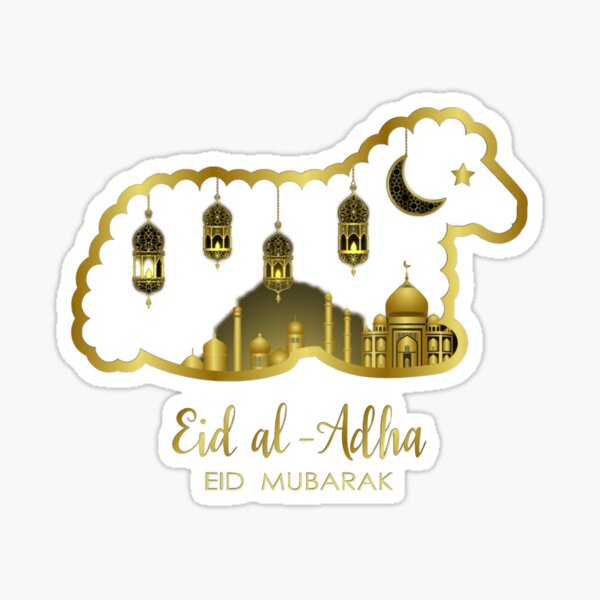While Eid al-Fitr celebrates the end of the month of Ramadan – the holy month of fasting, Eid al-adha is the latter of the two official Muslim holidays with its own seperate feast built around food and meat being the main ingredient. The date changes every year as Islamic holidays follow the Hijri lunar calendar which dates from the emigration of the Prophet from Mecca to Medina in 622 AD. The exact date of Eid al-adha typically depends on the sighting of a new moon with celebrations occurring during any season of the year. Building on the concept of sacrifice within Ramadan, Eid al-adha is typically a 3 to 4 day communal festival where families and neighbors, regardless of race or class, gather to sacrifice sheep, then wash the meat and distribute it. As such, the old festival of Eid al-aha is known in Arabic as the ‘Festival of Sacrifice’ or Greater Eid.
Eid al-adha honors the willingness of the prophet Ibrahim to sacrifice his son Ismail as a test of faith and act of obedience to God. According to the Quran, God offered Ibrahim a ram to kill in place of his son. As a result, each year and depending on the region, people across the Islamic world sacrifice a lamb, goat, cow or camel before dividing the meat into thirds and distributing it among neighbors, family members and the needy. This holiday used to involve the slaughtering of animals at home, collaboration and sharing, as well as butchering and cleaning together.
Today, Eid al-adha is celebrated by Muslims around the world and marks the end of the Hajj five-day pilgrimage – a cleansing journey the Muslims undertake in Mecca. During the morning of Eid al-Adha, Muslims around the world traditionally do a special prayer called Salat al-Eid, dress in fine clothes and then take part in a bountiful feast. This Eid holiday often includes a large get-together of extended family and friends with Eid decorations, a gift exchange as well as a countless array of both traditional and non-traditional dishes. A main highlight on the Eid menu is dessert which stays on the table all day and represents the local culture. Arabian pastries called Ma’amoul are eaten during Eid festivals. In recent years, laws have changed and home butchering of animals has become banned in many countries including the Arab world where a fifth of the two billion Muslims across the globe live. While the sense of community may have disappeared as a result of these changes, other elements of the Eid celebration have remained intact.
Depending on when Eid falls, food choices may vary. Food served in the summer is also different than that served when Eid al-Adha is celebrated during cooler weather. In addition, Eid traditions and festivities vary with unique cultural celebrations and practices from East to West and one country to another. In the United Arab Emirates (UAE), the essential holiday dish is Machboos el-Eid, a saffron laced spice-rubbed and roasted lamb. Depending on the family, this spice mixture can vary and typically includes women picking out fresh spices a few days before to prepare at home. In some parts of Turkey, the sacrificed goat is henna-painted and adorned with ribbons. In Egypt, the celebration takes on a greater significance with the entire country including the poor and needy receiving nutritious meat. In Iran, the celebration is dubbed as ‘salty Eid’ and a large variety of dishes are savory consisting of beef or mutton. In India, Eid al-adha is a festival that is celebrated with traditional passion and cheer. In Pakistan, the festival is a religious holiday with all shops closed. In Bangladesh, the holy festival is observed as both a religious and festive one. In Canada, celebrations include a carnival of fun rides, shows, sports tournaments in addition to a variety of international cuisines. In the U.S., the holiday is celebrated with prayers and social gatherings. In the U.K., Muslims start the day by performing a full-body purification ritual and then dress in their finest outfits before attending an outdoor prayer service.
Regardless of how Eid al-adha is celebrated across cultures, what all countries have in common is that this holiday is an occasion for both joy and peace – a time for sacrifice, gratitude and sharing. Next time you would like to wish someone a happy Eid during Eid Al-Adha, you can go ahead and say Eid Mubarek which in Arabic translates to “Blessed Eid”.


Recent Comments